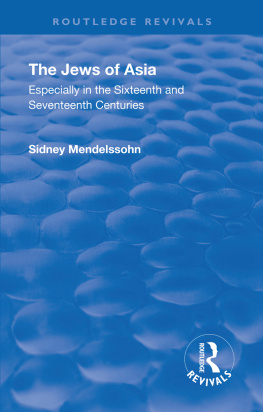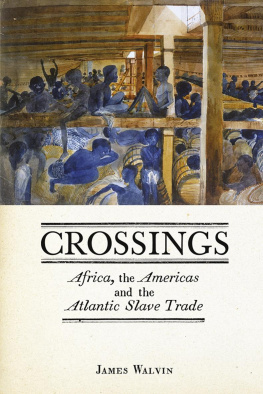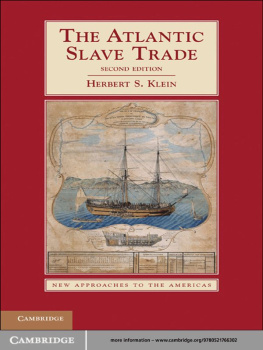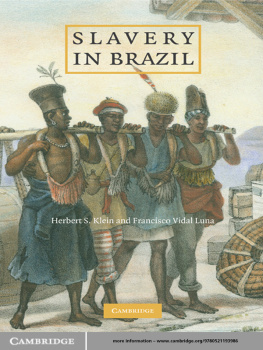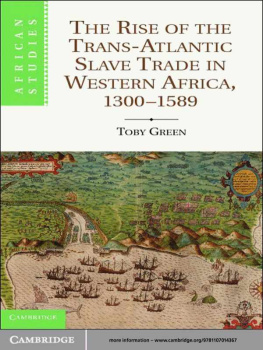The Trade in the Living
FERNAND BRAUDEL CENTER
STUDIES IN HISTORICAL SOCIAL SCIENCE
Series Editor: Richard E. Lee
The Fernand Braudel Center Studies in Historical Social Science will publish works that address theoretical and empirical questions produced by scholars in or through the Fernand Braudel Center or who share its approach and concerns. It specifically seeks to promote works that contribute to the development of the world-systems perspective engaging a holistic and relational vision of the worldthe modern world-systemimplicit in historical social science, which at once takes into consideration structures (long-term regularities) and change (history). With the intellectual boundaries within the sciences/social sciences/humanities structure collapsing in the work scholars actually do, this series will offer a venue for a wide range of research that confronts the dilemmas of producing relevant accounts of historical processes in the context of the rapidly changing structures of both the social and academic world. The series will include monographs, colloquia, and collections of essays organized around specific themes.
VOLUMES IN THIS SERIES:
Questioning Nineteenth-Century Assumptions about Knowledge, I: Determinism
Richard E. Lee, editor
Questioning Nineteenth-Century Assumptions about Knowledge, II: Reductionism
Richard E. Lee, editor
Questioning Nineteenth-Century Assumptions about Knowledge, III: Dualism
Richard E. Lee, editor
The Longue Dure and World-Systems Analysis
Richard E. Lee, editor
New Frontiers of Slavery
Dale W. Tomich, editor
Slavery in the Circuit of Sugar: Martinique and the World-Economy, 18301848
Dale W. Tomich
The Politics of the Second Slavery
Dale W. Tomich, editor
Race and Rurality in the Global Economy
Michaeline A. Crichlow, Patricia Northover, and Juan Giusti-Cordero, editors
The Trade in the Living
Luiz Felipe de Alencastro
The Trade in the Living
The Formation of Brazil in the South Atlantic, Sixteenth to Seventeenth Centuries
Luiz Felipe de Alencastro
Translated by
Gavin Adams and Luiz Felipe de Alencastro
Revised by
Michael Wolfers and Dale Tomich
FERNAND BRAUDEL CENTER
STUDIES IN HISTORICAL SOCIAL SCIENCE
Published by State University of New York Press, Albany
2018 State University of New York
All rights reserved
Printed in the United States of America
No part of this book may be used or reproduced in any manner whatsoever without written permission. No part of this book may be stored in a retrieval system or transmitted in any form or by any means including electronic, electrostatic, magnetic tape, mechanical, photocopying, recording, or otherwise without the prior permission in writing of the publisher.
For information, contact State University of New York Press, Albany, NY
www.sunypress.edu
Library of Congress Cataloging-in-Publication Data
Names: Alencastro, Luiz Felipe de, author.
Title: The trade in the living : the formation of Brazil in the South Atlantic, sixteenth to seventeenth centuries / Luiz Felipe de Alencastro ; translated by Gavin Adams and Luiz Felipe de Alencastro ; revised by Michael Wolfers and Dale Tomich.
Other titles: Trato dos viventes. English
Description: Albany : State University of New York Press, 2018. | Series: SUNY series, Fernand Braudel Center Studies in Historical Social Science | Includes bibliographical references and index.
Identifiers: LCCN 2017023406 (print) | LCCN 2017024046 (ebook) | ISBN 9781438469317 (ebook) | ISBN 9781438469294 (hardcover : alk. paper)
Subjects: LCSH: SlaveryBrazilHistory16th century. | SlaveryBrazilHistory17th century. | SlaveryAngolaHistory16th century. | SlaveryAngolaHistory17th century. | BrazilForeign relationsAngola. | AngolaForeign relationsBrazil. | BrazilHistory16th century. | BrazilHistory17th century.
Classification: LCC HT1126 (ebook) | LCC HT1126 .A7313 2018 (print) | DDC 306.3/62098109031dc23
LC record available at https://lccn.loc.gov/2017023406
10 9 8 7 6 5 4 3 2 1
ILLUSTRATIONS
Table
Maps
Figures
PRESENTATION OF THE ENGLISH-LANGUAGE EDITION
Patrick Manning
E nglish-speaking readers now have direct access to this important volume by Luiz Felipe de Alencastro, in which he displays vividly the complex struggles of the South Atlantic in the sixteenth and seventeenth centuries. As the Atlantic underwent exploration and then conquest by European mariners, Portuguese vessels traced the whole Atlantic coast of Africa and half that of the Americas. With time, as the Portuguese came to focus their efforts on Angola and Brazil, two great struggles overlapped in this newly opened circuit of ocean and littoral. The first was that of building a Portuguese-led empire. In this long campaign for wealth and control, slave production of sugar arose on both sides of the Atlantic, captaincies in Brazil expanded through exploitation of Amerindian labor, and Portuguese seizure of land and labor in Angola and Kongo fed New World exploitation. Then came three decades of war with Dutch invaders, who seized parts of Brazil and Angola until Brazilians finally drove them out, re-established Luso-Brazilian dominion, and heightened their system of exploitation.
Alencastro demonstrates the importance of this great maritime region and its struggles for power in the early modern world. For instance, he emphasizes that the South Atlantic encompassed the South American and Angolan fronts of the Thirty Years War. He also labels the regions and the protagonists as they were called in documents of the time: the Ethiopic Ocean linked Portugal to the north with Brazil in the west and the African coast on the east. The key groups characters were the Portuguese from the metropole, the Braslicos or Portuguese-descended settlers in Brazil, the Amerindians of Brazil, the Angolistas or Portuguese-descended settlers in Angola, the Africans, and the mixed descendants of these groups, the mulattos. The Brazilians were then the subjects of imperial Brazil after independence in 1822.
Alencastro argues consistently that the history of Brazil has extended far beyond the limits of the South American mainland. From the earliest Portuguese visit in 1500 to the conclusive abolition of slavery in 1888, Brazil relied heavily on slave production to build its economy. Further, the slave production of Brazil could only go ahead with the reproduction of slaves, especially in Angola. This pattern of Brazils dependence on the exploitation of Angolas human capital not only persisted through the long colonial period, but expanded again during the second slavery of the nineteenth centurythe sixty years of independence under the empire of Brazil. Rather than a triangular trade in slaves such as that linking England, West Africa, and the Caribbean, Brazil carried on a largely bilateral trade in slaves with Angola and a smaller bilateral trade in slaves to the Bight of Benin, sending tobacco, manioc, and alcoholic beverages (often slave-produced) to Africa in return for more slaves.


